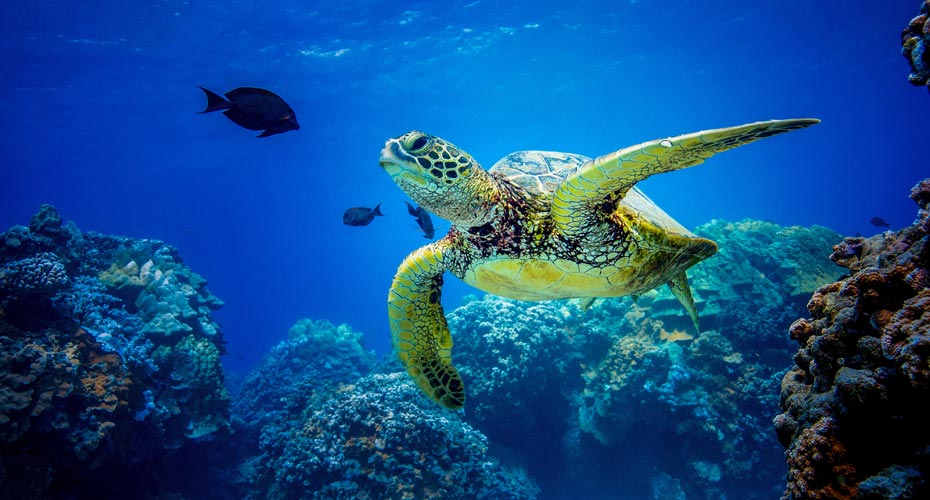Endangered sea turtle populations boosted

University of Exeter scientists are driving research that is leading to successful conservation outcomes for global sea turtle populations. The research, which has included extensive tracking of sea turtles around the world, has informed policy and led to legislative changes that provide greater protection for these animals.
Annette Broderick, Senior Lecturer in Conservation Biology, and Brendan Godley, Professor of Conservation Science, lead the marine turtle group based at Penryn Campus. The group has worked with local governments and non-governmental organisations in more than 20 countries to highlight the status and distribution of their marine turtle populations and feed the data into policy and conservation planning.
A body of work commissioned by the UK Government and carried out in the UK Overseas Territories has provided much needed baseline data on marine turtle populations, including their migration patterns, trends in population size and trends in legal and illegal harvests. These data have informed the UK Government’s position on key multi-lateral environmental agreements, such as the Convention on Biological Diversity.
Dr Vincent Fleming from the Joint Nature Conservation Committee, which serves as the statutory advisor to the UK Government on national and international nature conservation issues, said: “The results of research of this group has been instrumental in informing the Governments of the UK and its Overseas Territories with respect to policies, legislation and conservation management of marine turtles.”
Local impact
Detailed monitoring in the Overseas Territories has also had an impact locally. In 2008, legislation in the Cayman Islands, where there is a regulated marine turtle fishery, was amended to extend seasonal closures and to include a maximum size limit. Over a decade of information has been collected on the nesting and in-water populations of marine turtles in the Cayman Islands.
Gina Ebanks-Petrie, Director at the Department of Environment in the Cayman Islands, said: “[This] detailed information has led to management and policy changes most notably through the designation of protected areas and changes to the marine turtle harvest legislation.”
In Anguilla, recommendations by the team resulted in the extension of an existing moratorium prohibiting the harvest of marine turtles, extending it for an additional 15 years from 2006.
Data collected over the past 21 years through a volunteer-based project in Cyprus have provided the foundation for the establishment of five Special Environmental Protected Areas (SEPAs). One SEPA site on Northern Cyprus, in Alagadi, has primarily been selected because of its importance, both nationally and internationally, as a sea turtle nesting area.
The results of research of this group has been instrumental in informing the Governments of the UK and its Overseas Territories with respect to policies, legislation and conservation management of marine turtles.
Dr Vincent Fleming
Joint Nature Conservation Committee
Threats to turtles
The major threats to turtles come from humans, either directly through harvesting eggs and adults or indirectly when adults are caught in shrimp nets, from pollution in the oceans, and from development on coastal habitats where they lay their eggs. Now with the help of the team at Exeter, informed conservation planning and improved legislation are providing a framework to help some sea turtle populations recover.
.
Grants and funding
The marine turtle group’s research has been funded by the Department of Environment, Fisheries and Rural Affairs, the Department for International Development and the Foreign and Commonwealth Office, as well as the Natural Environment Research Council.
Related publications



